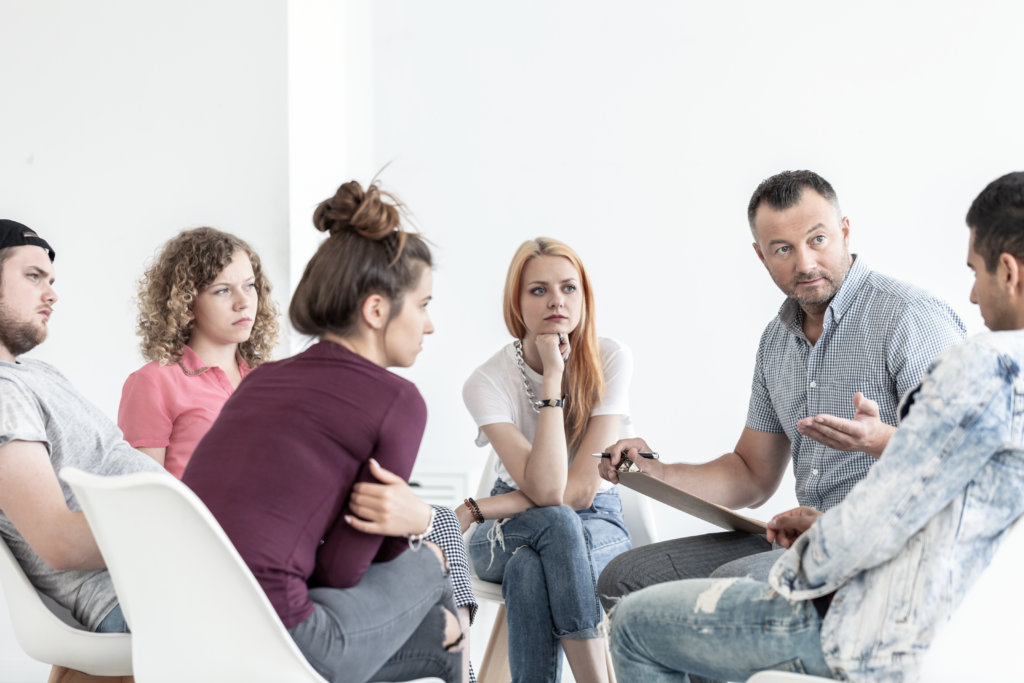Tips for Families Coping with Substance Use Disorders

Every family is unique. However, during difficult times most families share bonds that can be used to support each other. There is no common solution for helping an addicted family member who is drinking, using drugs, or dealing with mental issues. No doubt, that all people with substance use should get professional treatment in residential rehabs and pass a detox program successfully. At the same time, family support is also necessary and plays a major role in helping a loved one with mental and substance use disorders.
When one family member is experiencing a problem with substance abuse, it affects other family members. The research shows that some individuals have a genetic predisposition for developing mental and substance use disorders, and have a greater risk to become addicted based on different environmental factors such as having grown up in a home affected by a family member’s mental health or history of substance use.
You can help a family member cope with addiction by understanding addiction and taking steps to help get your loved one into a treatment program. Here are some tips that can help.
Educate yourself and other family members about addiction
There are many books, articles, research papers, and online resources that can help families learn about addiction. Most of them offer information about the chemistry of addiction and the science behind addiction treatment. Many studies discover how substances interact with the cells inside the brain, side effects of using drugs and alcohol. And provide knowledge of new treatments that might one day either treat or prevent addictions. Understanding addiction as an illness not as a choice might help family members to avoid anger and blame. This knowledge can boost a family’s sense of hope and feel more confident that they can treat and conquer addiction.

Connect with peers through trusted programs to support a loved one with an addiction
Addiction is a very difficult condition that is hard to understand. Usually, people get addicted when they have some troubles, misunderstandings, and mistrust between every member of a family touched by the addiction. It’s not always easy to live with or support someone who has an addiction. In this situation, connecting with peers can help a lot through participating in trusted programs, which provide a safe, nonjudgmental space where family members can learn, discuss and cope with an addiction. It’s a sort of therapy for family members where they can learn, share their experience and find the solution in difficult life situations and how to deal with a loved one’s addiction.
Visit family and private therapy sessions
Family therapy programs are designed to break down distrust and guilt by giving everyone a chance to be heard. It can help family members understand themselves and each other, and work through conflict in a healthy way. Family therapy sessions can take time, but they work very well and help many families.
Very often addiction can cause deep wounds that often benefit from seeking professional help. Many studies show that families of addicted people experience increased levels of depression and anxiety. In this case, a private therapy session is a safe place for family members to talk openly, work through issues.
Spend more time together as a family
Nowadays in the modern, chaotic world, family members spend less and less time together. Everyone is very busy with work, personal interests, hobbies, and activities. People come back home late just to sleep there. However, it’s too easy to come back home a little earlier, at least to have dinner together as a family. A family meal allows everyone to reconnect at the end of a day that may have been stressful, lonely, upsetting. Rituals of having dinner together can promote a sense of common ground and togetherness.
Stay in touch with personal joy and have fun
Every member of a recovering family needs to take time to do something relaxing and fun. Everyone can find the activity that they like the most. There are many ways to have fun and relax. Playing an instrument, taking pictures, volunteering, playing with kids, cooking, gardening, crafting, exercising, etc. These activities can make you feel happy, relaxed and help boost mental health.
It’s scientific fact that exercise has the proven ability to reduce stress and depression. Stretching muscles and pushing tendons prompts the brain to release so-called pleasure chemicals, including dopamine and oxytocin. High-energy exercise sessions can help families vent their worry and stress in healthy ways. Instead of yelling, they can run. Instead of pacing, they can do yoga. It’s a wonderful way to stay on track with healing and it’s relatively easy to get started.

Help Is Available
Families living with addiction don’t have to walk the path to recovery alone. There are a number of residential treatment centers, even luxury drug rehabs, that provide support for both the addicted person and their family. Hathaway Recovery is one of these centers that provide programs geared towards families of patients, including family weekends which offer educational courses on addiction for family members. Being able to offer support, family members can connect those in need with treatment, resources, and services to begin and stay on their recovery journey. Contact Hathaway Recovery today if you have questions about family resources, the recovery process, or personalized treatment options for addiction that could work well for your loved one.






